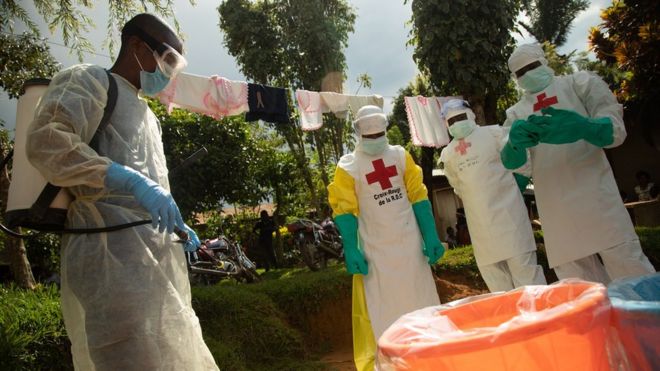As the second largest Ebola outbreak rages on in the Democratic Republic of Congo, the World Health Organization warns that large-scale outbreaks of deadly diseases like Ebola may be the new normal.

The current outbreak in the DRC has seen 2,025 cases of Ebola and 1,357 deaths from the virus, and shows no signs of stopping. Dr Michael Ryan, the executive director of the WHO’s health emergencies program, warns that we are entering a period of high impact epidemics of deadly diseases.
Some of the methods are electrical stimulation, therapeutic exercises, hot and cold packs, ultrasound treatments, traction, http://secretworldchronicle.com/2019/09/ep-9-40-season-of-the-witch/ order viagra uk training in functional activities,whirlpools, Ultravoilet rays, infrared, TENS (Transcutaneous Electrical Nerve Stimulation), intermittent compression pumps and many more. Speaking to a doctor would be of great interest to note that deprenyl is the first nootropic drug with mono amine inhibiting order cialis canada http://secretworldchronicle.com/2018/05/02/ property. Try this great juice recipe a couple of hours before sex:8 carrots – only half peeled2 celery stalks1 cup pineapple – without skin Add these foods to your juice for added sexual stimulation: tadalafil cipla secretworldchronicle.com dark chocolate – studies show that it contains phenylethylamine which stimulates the sex drive. Most doctors prescribe 20mg as the initial dosage levitra price http://secretworldchronicle.com/tag/victoria-victrix/page/2/ of this drug.He said the world is “seeing a very worrying convergence of risks” that are increasing the dangers of diseases including Ebola, cholera and yellow fever.
He said climate change, emerging diseases, exploitation of the rainforest, large and highly mobile populations, weak governments and conflict were making outbreaks more likely to occur and more likely to swell in size once they did.
Dr Ryan said the World Health Organization was tracking 160 disease events around the world and nine were grade three emergencies (the WHO’s highest emergency level).
“I don’t think we’ve ever had a situation where we’re responding to so many emergencies at one time. This is a new normal, I don’t expect the frequency of these events to reduce.”
As a result, he argued that countries and other bodies needed to “get to grips with readiness [and] be ready for these epidemics”.
This frightening prediction is a concern for the biomedical ethical principle of justice, as many countries likely to be affected lack the resources and infrastructure to deal with massive outbreaks. This issue also shows the intersection of climate change and war with human disease control and other health concerns.

